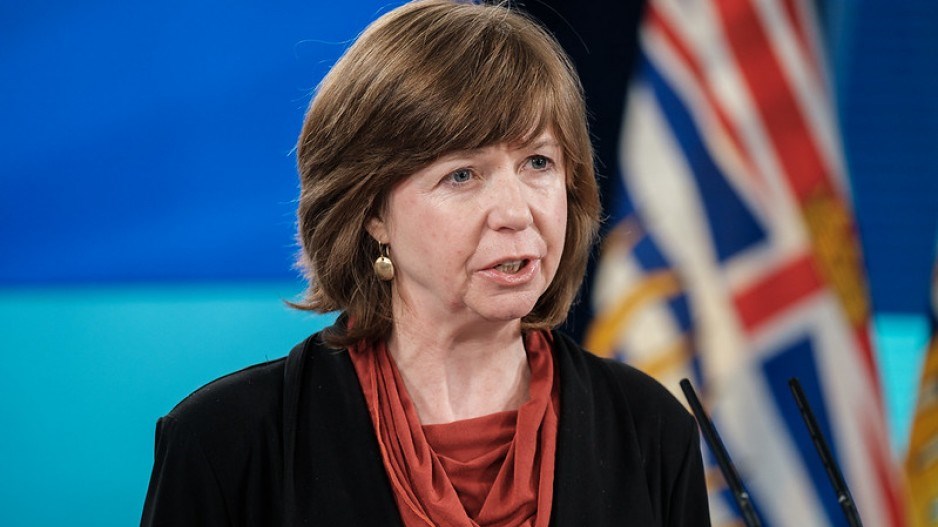All three of B.C.’s political parties – including the NDP – have joined together to co-write a report that sharply criticizes the NDP government for an inadequate addictions and treatment system, saying the government needs to make major investments and reforms to curb a toxic drug crisis that has already killed more than 10,000 people.
The all-party legislature committee, made up of Greens, Liberals and New Democrats, spent seven months listening to 118 presenters, experts, advocacy groups and people with lived experience, before penning 37 recommendations on Tuesday.
“To ensure supports and services are available throughout B.C., the committee recommends rapidly scaling up and expanding the continuum of care, as well as improving accountability by defining and publicly reporting on goals, metrics and timelines,” read the report.
It also called for more action from the province.
“Urgently fund a substantial increase in publicly funded, evidence-based, and accredited treatment and recovery beds and outpatient services, including managed withdrawal (detox) and aftercare supports, while ensuring a variety of treatment options to support individual and family needs,” wrote the MLAs.
The word “urgent” was used five times in the recommendations section alone, including on harm reduction, safe supply, treatment, recovery and youth services.
But if there was urgency felt by the BC NDP government, it wasn’t on display when Mental Health and Addictions Minister Sheila Malcolmson stood in front of cameras to respond.
“There wasn't a system in place when we formed government, when my ministry was created,” Malcolmson said, repeating well-worn lines that blame the previous Liberal government for the crisis even though we’re a half-decade into an NDP administration.
“We've been working ever since to build that system out. And there's a lot more for us to do ahead.”
At one point, Malcolmson rattled off “the roadmap that we’re building out” including expanding public health resources, prescriptions for safe supply and a federal exemption for decriminalization of small-scale personal possession of drugs.
Her ministry has also made numerous announcements since June, such as new programs for those at risk of suicide, new Foundry Centres in six cities communities, a new sobering centre in Prince George, four new youth substance beds in Maple Ridge, rapid access to addictions care in Abbotsford, 35 new substance beds in the interior, five new youth beds in Cranbrook, and so on.
On Friday, Malcolmson will be out again to unveil 30 new and expanded services for young people dealing with mental health and substance use challenges.
But the long list of one-off bed announcements and care centres has failed to coalesce into an actual system of care. Instead, as the report noted, there are silos, gaps, wait times and people falling through the cracks of everything the minister has announced.
“In cases where work is already underway, the committee calls for urgent expansion or acceleration of those efforts,” read the report.
Perhaps most alarming were statistics that showed 72 per cent of those who’d died due to toxic drugs had visited a health professional within the last three months, and 30 per cent had 10 or more visits during that time.
“The committee learned that those are critical and important touchpoints,” said Liberal MLA Shirley Bond. “Something is desperately wrong, and it must be fixed.”
Green leader Sonia Furstenau said the final report, which she endorsed, could have been bolder.
“What this report largely does is reiterates what has been called for many times in the past,” said Furstenau, who sat on the committee. “What’s needed is action.”
Still, that’s not to say the all-party committee report was a complete waste of time, as Premier John Horgan had feared before reluctantly calling the group together in April.
“The value of the work that this committee did was to bring everybody into a shared landscape of the reality of this crisis,” said Furstenau.
“This was a building-shared-reality project. And the response to that shared reality differs across the political lines in the house, but the collective understanding of the reality is really critical.”
All sides praised NDP committee chairperson Niki Sharma for, as Bond put it, “an incredibly skillful job” bringing the three parties together into a working group. Sharma, the MLA for Vancouver-Hastings, is a rising star in the NDP caucus. She’s widely expected to be elevated to cabinet by premier-designate David Eby.
Malcolmson said she’d review the report and analyze its recommendations – though, her ministry ought to know them by heart by now because they are the same things that the coroner, public health officials and user groups have been saying for years.
“When someone reaches out for help, that they get treatment on demand, that is the system we’re building towards,” said Malcolmson.
“We’re not there yet.”
More like we’re not even close, according to the all-party committee.
Rob Shaw has spent more than 14 years covering B.C. politics, now reporting for CHEK News and writing for Glacier Media. He is the co-author of the national bestselling book A Matter of Confidence, and a regular guest on CBC Radio.



